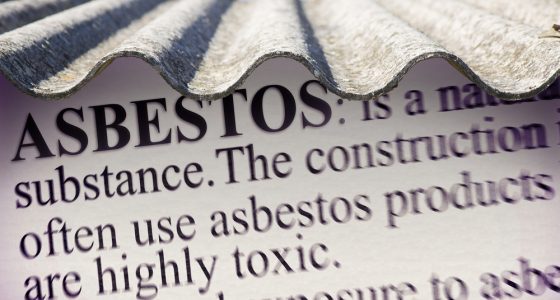Over the last several decades, many asbestos companies have established settlement trusts that provide compensation to mesothelioma victims and others suffering asbestos-related diseases following exposure to their products. Arranged as part of bankruptcy filings, the trusts have allowed companies to walk away from millions of dollars in liability for individual personal injury lawsuits. Still, some companies chafe at having to pay sums to victims, as was the case in a recent hearing in Pennsylvania. A bankruptcy judge pushed back on the company’s objections.

Pennsylvania Bankruptcy Judge Puzzled by Honeywell’s Assertions Over Mesothelioma Claims
The case heard by U.S. Bankruptcy Judge Thomas Agresti was filed by Honeywell, a company whose asbestos-contaminated products have been blamed for countless cases of malignant mesothelioma and other asbestos-related injuries. On behalf of Honeywell, attorney Greg Primis gave voice to an assertion that the administrators of the $2.3 billion trust set up for their subsidiary, the North American Refractories Company asbestos trust, was using “formulaic allegations of exposure” and paying sums out of the fund too easily. He argued that the trust had promised to stop approving claims based on “check-the-box” affidavits that did not contain enough detail or proof of asbestos exposure.
When Mr. Primis indicated that the NARCO trust was submitting asbestos-related disease and mesothelioma claims from “81 different people all over the country saying the same thing,” Judge Agresti interrupted him, asking “How many other ways can you say it? They’re saying the same thing.” When Honeywell’s attorney repeated his objection to the rubberstamped language, the judge reiterated, saying “Maybe 81 people over the country have the same exposure experience. How many different ways can you say it?”
Judge Repeatedly Questions Honeywell’s Objection to Similar Language in Mesothelioma Claims
While Honeywell’s attorney continued to argue that having multiple mesothelioma and asbestos-related disease claims use the same language diminished their veracity, the judge repeatedly pushed back, indicating that the attorney had not answered his question as to why different language needed to be evident on each form. “You say just because there’s some commonality, you can’t believe the affiant? It seems like we’re dancing around the same thimble. I just wanted to hear what you thought, but frankly you didn’t clear me up on that.”
Echoing the judge’s words, the attorney representing the trust agreed that Honeywell’s argument against the language used on the mesothelioma and asbestos injury claims was insufficient to warrant compensation or reflected a lack of due diligence on the part of the trust’s administrators. Joseph Baio noted that when the trust was established, the language used in documents between Honeywell and the trust administrators specifically noted that an affidavit “contains exposure allegations that use identical descriptive language as the language contained in other exposure affidavits submitted to the trust.”
Many mesothelioma victims are eligible to file claims with asbestos settlement trusts, and to quickly receive the compensation they need and deserve. For more information, contact the Patient Advocates at Mesothelioma.net at 1-800-692-8608.
